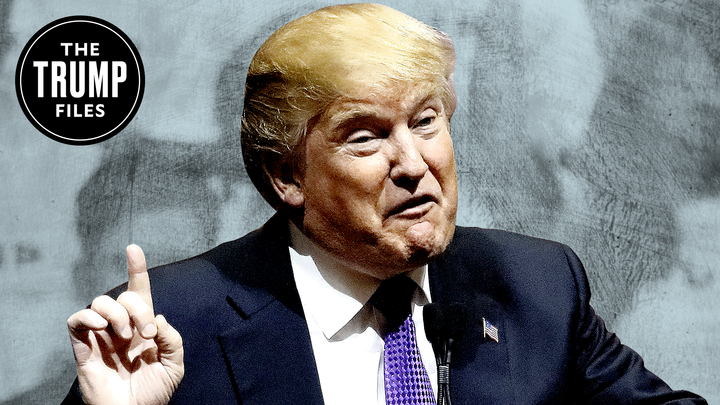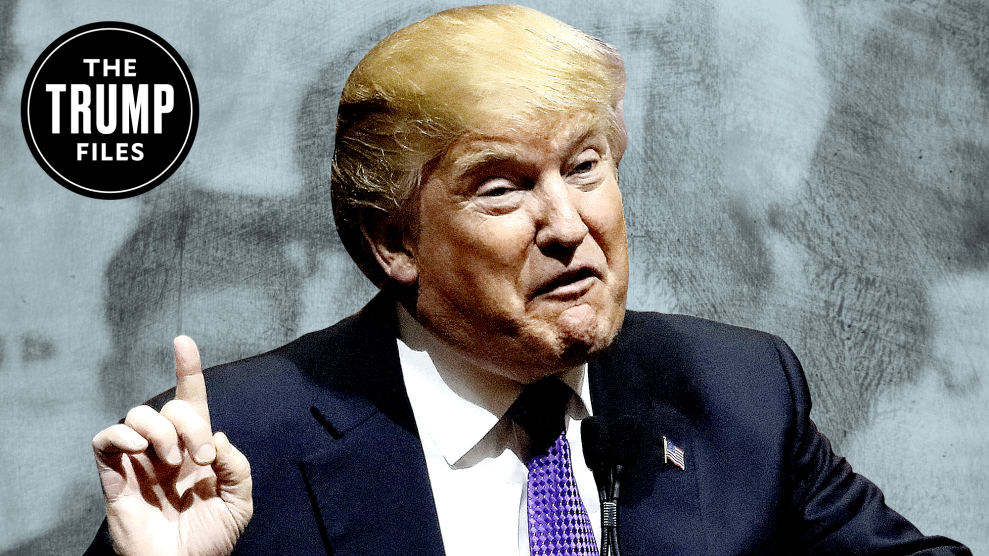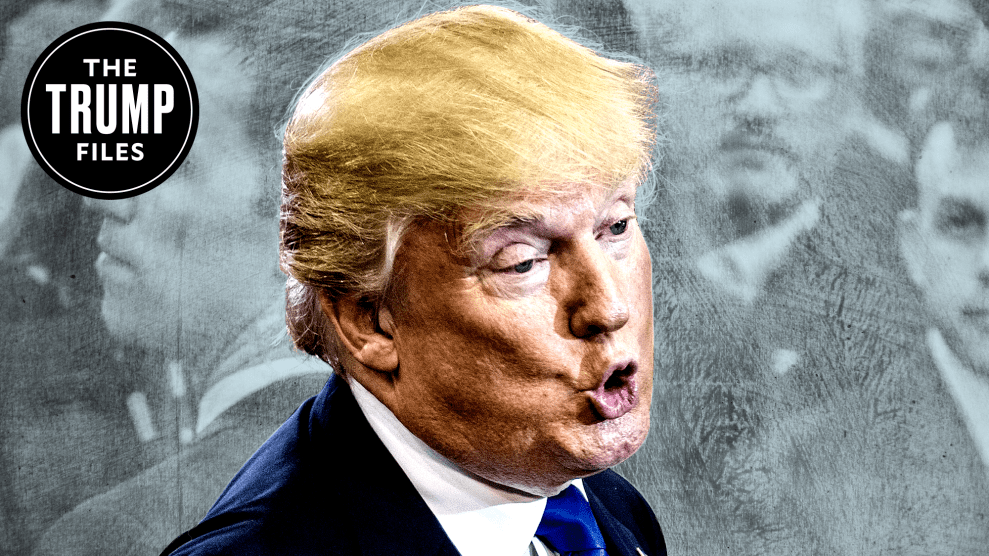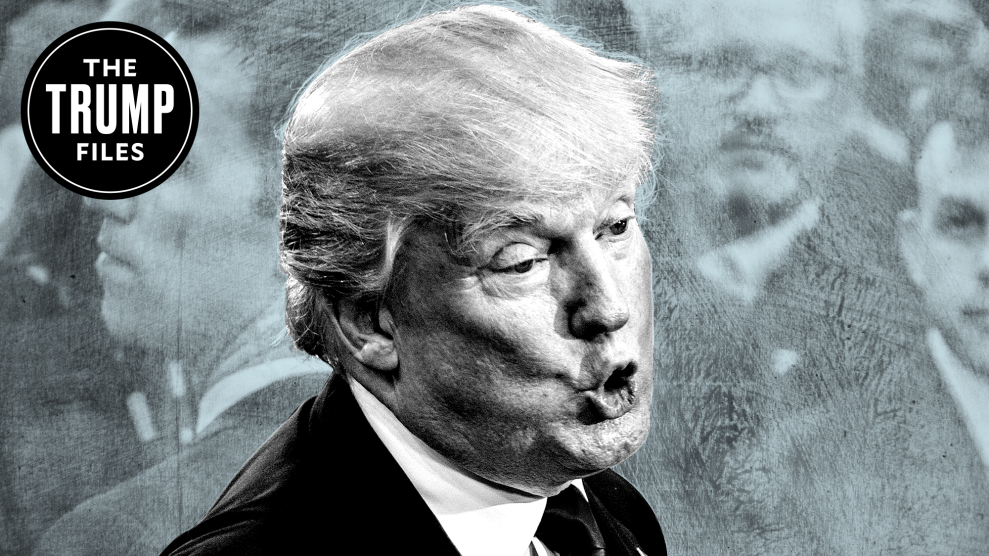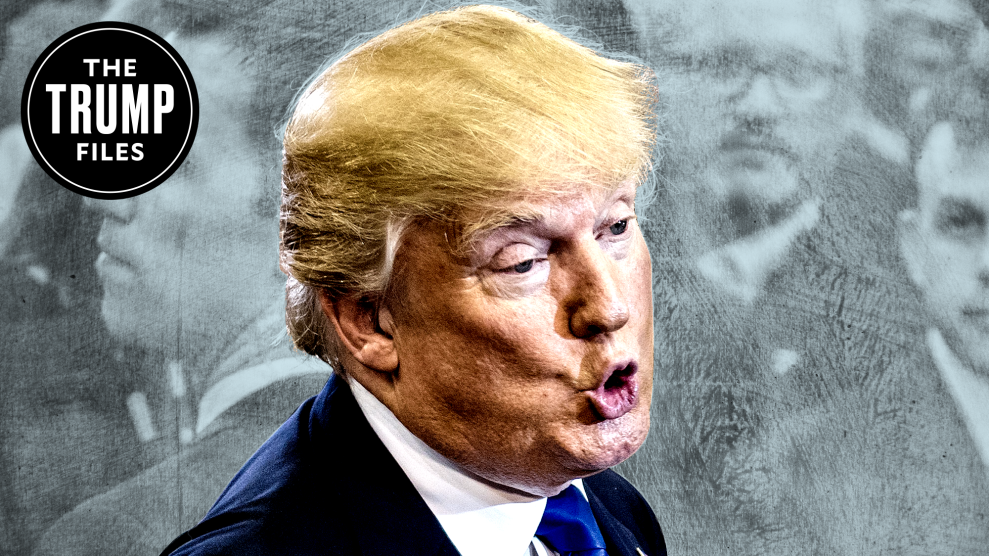
Mother Jones Illustration; Shuttershock
This post was originally published as part of “The Trump Files“—a collection of telling episodes, strange but true stories, and curious scenes from the life of our current president—on June 27, 2016.
Donald Trump is notoriously protective of his brand, so when he learned in 1988 that a small Georgia-based company was selling business cards dubbed “Trump Cards,” he played a card of his own: He launched a legal war against the firm, Positive Concepts, Ltd., in a bid to get the US Patent and Trademark Office to cancel its trademark registration.
Trump’s lawyers claimed PCL deliberately chose the moniker in order “to benefit…from the worldwide fame, distinction and glamour of Donald J. Trump and his ‘TRUMP’ name.”
PCL’s lawyer, Kevin L. Ward, said at the time that the tycoon was trying to create a “trump” monopoly: “Donald Trump simply wants to own the word ‘trump,’ and anybody who wants anything to do with it will have to face Donald Trump. We can’t give up a word in the English language just because somebody has the power and money to do so.”
The battle between the business card maker and the real estate mogul eventually concluded in true Trumpian fashion—with a deal. In exchange for royalties and the rights to the trademark, Trump dropped his objection, licensed PCL to make the cards, and officially endorsed them, according to reports by the Associated Press.
Ward, the attorney who represented PCL, told Mother Jones that both sides were happy with the result of the settlement. He nevertheless pointed out that, according to the Oxford English Dictionary, the word “trump”—referring to a playing card of a suit that outranks the others in the deck—dates back to the 16th century, long before Donald Trump could stake his claim on it.
The former president of PCL, Edward Zito, did not respond to requests for comment.


